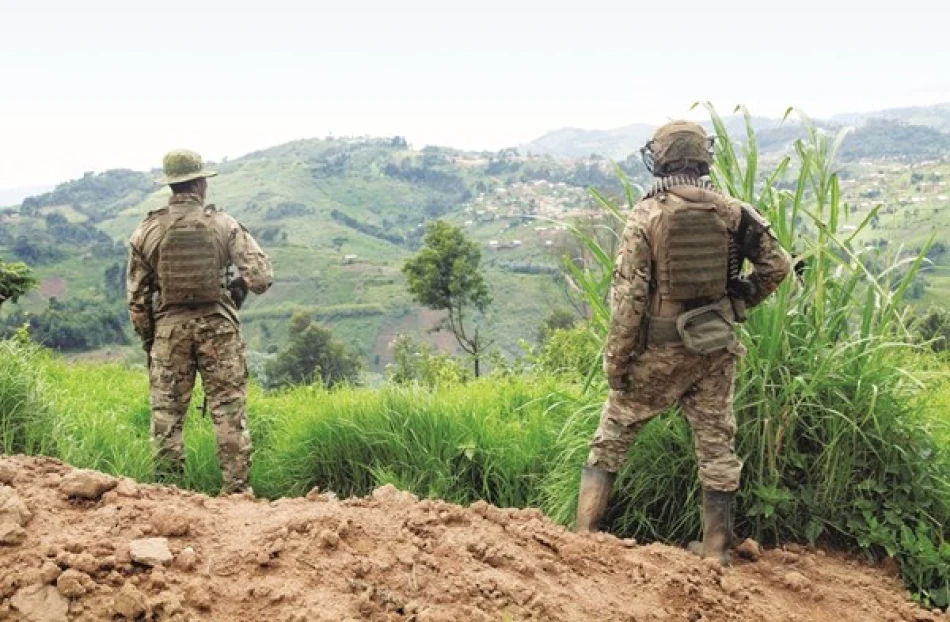
Deadly Militia Attack Claims 50 Civilian Lives in Eastern Democratic Republic of Congo
Congo Massacre: Over 50 Civilians Killed in Funeral Attack as Eastern Violence Escalates
Armed militants killed more than 50 civilians during a funeral ceremony in the Democratic Republic of Congo's volatile North Kivu province, marking another devastating blow to communities already terrorized by decades of conflict. The attack on Ntweyio village in the Lubero territory underscores the deteriorating security situation in eastern Congo, where over 120 armed groups compete for control of mineral-rich territories.
The Attack: Targeting Mourners in a Sacred Moment
Local officials confirmed that gunmen struck while villagers gathered for funeral rites in Ntweyio, a community in North Kivu's Lubero territory. The timing of the assault—during a traditional mourning ceremony—represents a particularly brutal escalation in tactics, targeting civilians at their most vulnerable and sacred moments.
Initial casualty reports place the death toll at 50, though officials warn this number could rise as rescue teams reach remote areas of the village. The attack follows a familiar pattern of violence that has plagued eastern Congo for over two decades.
North Kivu: Congo's Bleeding Heart
Strategic Importance Fuels Endless Conflict
North Kivu province sits at the epicenter of Congo's resource curse, containing vast deposits of coltan, gold, and other minerals essential to global technology supply chains. The province's proximity to Rwanda and Uganda has made it a battleground for both local militias and foreign-backed armed groups seeking to control lucrative mining operations.
The Lubero territory, where this latest massacre occurred, has experienced intensifying violence over the past year. Multiple armed factions, including remnants of the Democratic Forces for the Liberation of Rwanda (FDLR) and various Mai-Mai groups, operate across the region with impunity.
Civilian Cost of Mineral Wealth
Over 6 million people have died in eastern Congo since 1998, making it one of the world's deadliest conflicts. The United Nations peacekeeping mission MONUSCO, despite its $1 billion annual budget, has struggled to protect civilians across the vast, mountainous terrain.
The funeral attack highlights how violence has become normalized in communities where basic security remains elusive. Civilians face impossible choices: flee their ancestral lands or risk becoming casualties in conflicts they cannot escape.
Regional Implications and International Response
Rwanda-Congo Tensions Complicate Solutions
The latest violence occurs amid renewed tensions between Congo and Rwanda, with Kinshasa accusing Kigali of supporting the M23 rebel group that has captured significant territory in North Kivu. Rwanda denies the allegations, but UN experts have documented evidence of Rwandan military support for M23 forces.
This proxy dimension transforms local conflicts into regional power struggles, making sustainable peace agreements nearly impossible to achieve. Each massacre like the one in Ntweyio reinforces cycles of revenge and ethnic animosity that armed groups exploit for recruitment.
International Mining Companies Face Pressure
The attack will likely intensify scrutiny on international corporations sourcing minerals from eastern Congo. Recent supply chain legislation in the United States and European Union requires companies to verify their materials don't finance armed groups, but enforcement remains weak.
The funeral massacre demonstrates that current international approaches—combining peacekeeping missions with supply chain regulations—have failed to address the root causes driving violence in mineral-rich territories.
What This Means Moving Forward
The Ntweyio attack represents more than another tragic headline from Congo's endless conflicts. It signals the complete breakdown of social contracts between armed groups and civilian populations, where even funeral ceremonies become legitimate targets.
Without fundamental changes to how the international community addresses Congo's resource extraction and regional power dynamics, such massacres will continue to punctuate daily life in eastern provinces. The 50 lives lost in Ntweyio serve as a stark reminder that stability in Congo requires solutions addressing both local grievances and international economic interests that perpetuate the violence.
Most Viewed News

 Layla Al Mansoori
Layla Al Mansoori






